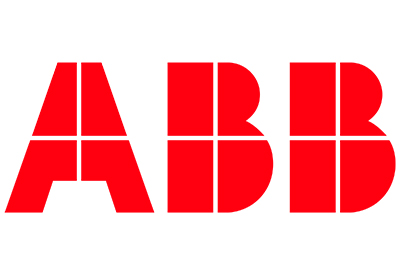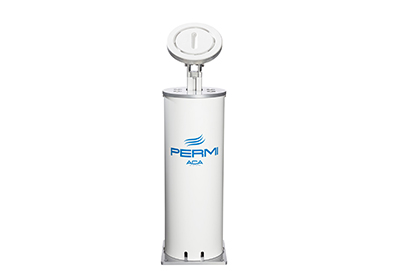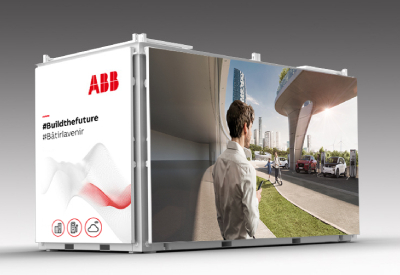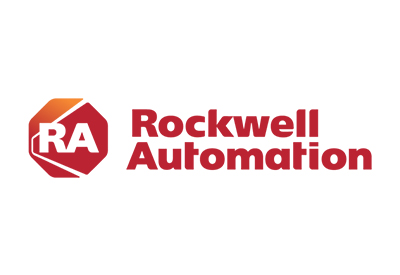ABB: Shaping a leader focused in digital industries

December 17, 2018
Fundamental actions to focus, simplify and lead in digital industries for enhanced customer value and shareholder returns
– Focus of portfolio on digital industries through divestment of Power Grids
- Divestment of Power Grids to Hitachi expands existing partnership and strengthens Power Grids as a global infrastructure leader with enhanced access to markets and financing
- Enterprise Value of $11 billion for 100% of Power Grids, equivalent to an EV/op. EBITA multiple of 11.2x1.
- Crystallizing value from the transformation of Power Grids including doubling operational EBITA margin since 20142
- ABB initially to retain 19.9 percent in the equity of carved-out Power Grids to ensure transition; pre-defined exit option on 19.9 percent equity at fair market value with floor price at 90 percent of agreed Enterprise Value, exercisable by ABB three years after closing
- Closing expected by first half of 20203
- ABB intends to return 100% of the estimated net cash proceeds of $7.6-7.8 billion4 from the 80.1% sale to shareholders in an expeditious and efficient manner through share buyback or similar mechanism
– Simplification of business model and structure
- Discontinuation of legacy matrix structure
- Businesses will run all customer-facing activities as well as business functions and territories, fostering ABB’s entrepreneurial business culture
- Businesses to be strengthened by transfer of experienced country management resources
- Existing country and regional structures including regional Executive Committee roles to be discontinued after closing of the transaction
- Corporate activities to be focused on Group strategy, portfolio and performance management, capital allocation, core technologies and ABB Ability™ platform
– Shape four leading businesses aligned with customer patterns
- All businesses global #1 or #2 in attractive growth markets:
– Electrification led by Tarak Mehta
– Industrial Automation led by Peter Terwiesch
– Robotics & Discrete Automation, a unique combination of B&R and Robotics, led by Sami Atiya
– Motion, combining ABB’s market-leading offering in motors and drives, led by Morten Wierod, appointed to Executive Committee as of April 1, 2019 - ABB Ability™ tailored digital solutions will drive customer value in each business whilst capturing synergies through common platform
- Actions position ABB with a leadership role in digital solutions, and evolving technologies such as artificial intelligence
– Financial impact of new ABB
- $500 million annual run-rate cost reductions across the group
- Approx. $500 million non-operational restructuring charges
– New financial framework post-closing defined
- New group target framework
- Capital allocation priorities unchanged
- Dividend policy of rising sustainable dividend per share
- ABB intends to maintain the level of dividend per share post close
- ABB intends to maintain its long-term “single A” credit rating
- Business targets and further financials to be disclosed with strategy update
– Strategy update on February 28, 2019, in combination with the Q4 and Full Year 2018 results to provide further details on ABB’s new strategy, businesses and financials
“ABB has been driving industrial change for more than a century as a global pioneering technology leader. As a result of our Next Level strategy, all of our businesses are today number 1 or 2 in their respective markets. To support our customers in a world of unprecedented technological change and digitalization, we must focus, simplify and shape our business for leadership. Today’s actions will create a new ABB, a leader focused in digital industries,” said ABB CEO, Ulrich Spiesshofer.
“Power Grids will strengthen Hitachi as global leader in energy infrastructure and Hitachi will strengthen Power Grids’ position as a global leader in power grids. With this transaction, we are realizing the value we have built through the transformation of Power Grids over the last four years. Our shareholders will directly benefit through the return of the proceeds of the divestment. Building on our existing partnership announced in 2014, the initial joint venture will provide continuity for customers and our global team.”
“To compete in today’s fast-changing world, we fully empower our businesses, through the discontinuation of the legacy matrix structure ensuring zero-distance to customers and increasing our agility in decision-making. Our four newly shaped businesses, each a global leader, will be well aligned to the way our customers operate and focus stronger on emerging technologies such as artificial intelligence. The continued simplification of our business model and structure will be a catalyst for growth and efficiency in our businesses. Our businesses will be further supported through the transfer of experienced resources from today’s country organizations.”
“All of this will only be possible due to the commitment of our global team who has made ABB what it is today. Our innovation power together with our inclusive culture will continue to be a differentiating strength of our company. We will live enhanced customer focus, provide attractive opportunities for our employees and deliver value for shareholders.”
Peter Voser, Chairman of ABB, said, “Today’s announcement marks the beginning of a new chapter in ABB’s history. Building on our technology and global talented employee base we will further strengthen our focus in digital industries, delivering competitive returns for shareholders, including our committed dividend policy. Over the past five years the deliberate execution of ABB’s strategy laid the foundation for our businesses to compete in the fast changing digital industries and deliver profitable growth.”
“We were very clear in the past that the actions required for the turnaround of Power Grids could be best achieved within ABB. Following completion of this step, we undertook a review of the Power Grids business and decided to secure the best home for the future development of the business through the combination with Hitachi. The new ABB will be positioned to write the future as a customer focused technology leader in digital industries.”
Focus of portfolio on digital industries through divestment of Power Grids
ABB announces today that Hitachi will acquire ABB’s Power Grids business, an expansion of its existing partnership with Hitachi. The agreed price represents a transaction Enterprise Value of $11 billion for 100 percent of Power Grids, the equivalent to an EV/op. EBITA multiple of 11.2x1, before share of corporate cost. ABB will initially realize a levered consideration of ~$9.1 billion from the sale of 80.1 percent of Power Grids, including pre-sale net leverage (intercompany loan net of cash transferred), before one-time transaction and separation related costs as well as cash tax impacts.
In the fast-changing world of energy infrastructure, with a shifting customer landscape and the need for financing and increased government influence, ABB believes Hitachi is the best owner for Power Grids. As a stable and long-term committed owner, with whom ABB has developed a strong business partnership since 2014, Hitachi will further strengthen the business, providing it with access to new and growing markets as well as financing. Hitachi will accelerate Power Grids to the next stage of its development, building on the solid foundation achieved under ABB’s previous ownership.
Since 2014, Power Grids has been significantly improved under the ownership of ABB. The latest results (Q3 2018) are at the target margin corridor, having more than doubled margins, with positive third party base order development recorded for the last six consecutive quarters.
ABB will initially retain a 19.9 percent equity stake in the joint venture, allowing a seamless transition. The transaction agreement includes a pre-defined option for ABB to exit the retained 19.9 percent share, exercisable three years after closing, at fair market value with floor price at 90 percent of agreed Enterprise Value. Hitachi holds a call option over the remaining 19.9 percent share at fair market value with floor price at 100 percent of agreed Enterprise Value.
The joint venture will be headquartered in Switzerland, with Hitachi retaining the management team to ensure business continuity.
Starting in Q4 2018 until closing, ABB will report Power Grids in discontinued operations. As a consequence, ABB will record $350-400 million of stranded and other carve-out related costs, which are currently predominately recorded as part of the Power Grids cost base. These will now be recognized in ABB’s corporate & other operational EBITA. ABB expects to eliminate the vast majority of these costs by deal closing by transferring them back to Power Grids. ABB expects approximately $200 million of charges in Q4 2018 related predominantly to the legacy EPC substation business reported in non-core corporate & other operational EBITA.
ABB expects to incur one-time non-operational transaction and separation related costs of $500-600 million. ABB anticipates $800-900 million related cash tax impact. The completion of the transaction is expected by first half of 2020, subject to regulatory approvals and fulfillment of closing conditions. ABB intends to return 100 percent of the estimated net cash proceeds of $7.6-7.8 billion5 from the 80.1 percent sale to shareholders in an expeditious and efficient manner through share buyback or similar mechanism.
Simplification of business model and structure
Effective April 1, 2019, ABB will simplify its organizational structure through discontinuation of the legacy matrix structure, thereby empowering its four leading businesses to serve customers even better, while further sharpening responsibilities and increasing efficiency.
ABB’s new organization will provide each business with full operational ownership of products, functions, R&D and territories. The businesses will be the single interface to customers, maximizing proximity and speed.
The corporate center will be further streamlined. It will set the long-term vision and strategy for the group, guided by ABB’s values. It will drive capital allocation, portfolio and performance management, core technologies ABB Ability™, ABB’s brand and investment in people. As a key building block of the simplification, existing country and regional structures including regional Executive Committee roles will be discontinued after the closing of the transaction. Existing resources from country level will strengthen the new businesses. ABB expects a total of $500 million annual run-rate cost reductions across the group over the medium-term. Approximately $500 million of related non-operational restructuring charges are expected to be taken over the coming two years.
Shape four leading businesses aligned with customer patterns
ABB will shape four customer-focused, entrepreneurial businesses – Electrification, Industrial Automation, Robotics & Discrete Automation and Motion. Each business will be either the global #1 or #2 player in attractive markets with strong secular drivers. ABB’s established domain know-how, world-class engineering and technology expertise, will position the four businesses well to deliver innovative products and solutions for enhanced customer value. ABB’s addressable market is growing by 3.5-4 percent per annum, adding $140 billion in size to reach $550 billion by 2025.
Based on ABB’s common digital platform ABB Ability™, the businesses will provide tailored digital solutions, driving enhanced customer value. Building on emerging technologies including artificial intelligence and its strong software offering, ABB Ability™ will meet the increasing demand from ABB’s customers for digital solutions in the rapidly changing industrial world.
Electrification – writing the future of safe, smart and sustainable electrification
The existing business will provide a complete portfolio of innovative products, digital solutions and services from substation to socket. With a #2 market position globally, its addressable market is presently $160 billion and will grow on average around 3 percent per annum over the long-term. The Electrification business will have strong exposure to rapidly growing customer segments including renewables, e-mobility, data centers and smart buildings. The business will be led by Tarak Mehta, currently president of the Electrification Product division. The Electrification business would have generated approximately $13 billion of revenues in the twelve-month period to end September 2018, including an estimated revenue contribution across the period from GEIS, a business that was acquired June 30, 2018.
Industrial Automation – writing the future of safe and smart operations
The newly shaped business will offer a complete range of innovative solutions enabling customers to operate safe and energy-efficient processes with increasing autonomy. Industrial Automation will include ABB’s industry-specific integrated automation, electrification and digital solutions, control technologies, software and advanced services, as well as measurement & analytics, marine, and turbo-charging offerings. Industrial Automation will be #2 in the market globally. The addressable market of $90 billion is expected to grow on average by 3-4 percent per annum over the long-term. The business will be led by Peter Terwiesch, currently president of the Industrial Automation division. Industrial Automation would have generated approximately $7 billion of revenues in the twelve-month period to end September 2018.
Robotics & Discrete Automation – writing the future of flexible manufacturing and smart machines
The newly shaped business will uniquely combine machine and factory automation solutions, mainly from B&R, with the most comprehensive robotics solutions and applications suite in the market. The business will be #2 globally, with a #1 position in robotics in the important, high-growth Chinese market. The addressable market, already $80 billion in size, is anticipated to grow on average at 6-7 percent per annum over the long-term. The business’s digital solutions and services provide customers with enhanced safety, efficiency, up-time and speed, and cater to the growing customer demand for flexible and integrated manufacturing solutions. Robotics & Discrete Automation will be led by Sami Atiya, currently president of the Robotics and Motion division. Robotics & Discrete Automation would have generated approximately $4 billion of revenues in the twelve-month period to end September 2018.
Motion – writing the future of smart motion.
The business will provide customers with a comprehensive range of innovative electrical motors, generators, drives, and service, as well as integrated digital powertrain solutions. Motion will be the #1 player in the market globally, with the largest installed base in an $80 billion market that grows on average around 3 percent per annum. The business will be led by Morten Wierod, currently Managing Director Business Unit Drives. He will become a member of the Executive Committee effective April 1, 2019. Motion would have generated approximately $6 billion of revenues in the twelve-month period to end September 2018.






